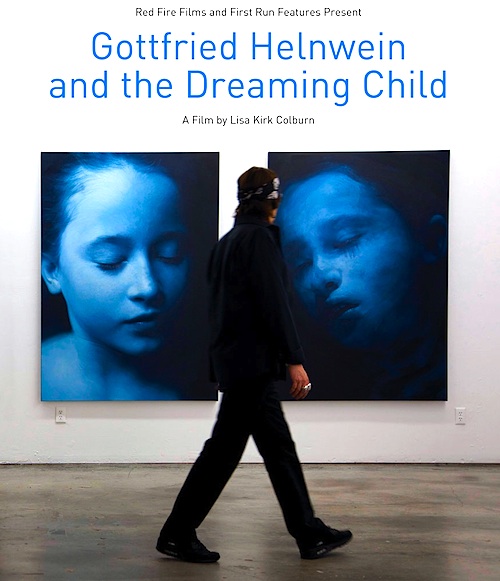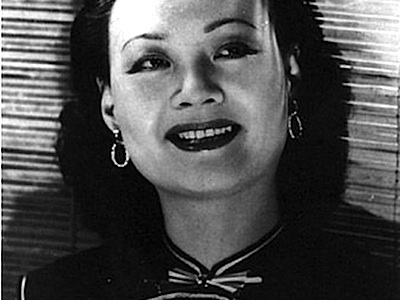[Editor’s Note: the post below appears today at The Huffington Post and at AOL-Moviefone.]
By Jason Apuzzo. Imagine being subjected to 24-hour secret police surveillance, or being surrounded by informers at your place of work – whose mission is to gain your confidence in order to evaluate your loyalty to the state.
Or imagine being subjected to random body searches, conducted by capricious security officials with too much time on their hands. (OK, admittedly we already have that – even if only at our nation’s airports.)
For the most part, however, Americans only have a dim sense of what it’s like to live in a truly repressive society – such as East Germany was behind the Iron Curtain during the Cold War. And this, ultimately, is the true value of director Christian Petzold’s gripping new film Barbara, which starts its U.S. theatrical run in December and recently screened at the AFI Festival in Hollywood. Germany’s official submission for the Best Foreign Language Film Oscar, Barbara is the most compelling depiction since The Lives of Others of day-to-day life in a modern surveillance state, in this case the communist East Germany of the early 1980s.

Already the winner of the Silver Bear for Best Director (Christian Petzold) at the Berlin Film Festival, Barbara stars Nina Hoss in the title role as a pediatric surgeon whose promising career at the prestigious Charité hospital in East Berlin is cut short when she files for an Ausreiseantrag, officially expressing her desire to leave East Germany. A terse and enigmatic blonde, Dr. Barbara Wolff also happens to be in the midst of a torrid, secret affair with a West German businessman – who’s quietly arranging for her escape to the West, as he makes officially sanctioned business trips into East Germany.
As punishment for her desire to leave East Germany, Barbara is sent to a rural hospital near the Baltic Sea, where she works under the watchful eye of Dr. André Reiser (actor Ronald Zehrfeld), who heads a modest pediatric unit. André tries to get chummy with Barbara, which she resists – suspecting him of being an informant for the Stasi (the East German secret police), who periodically arrive at her front door to strip search her or otherwise harass her.
Just another day in East Germany’s worker-paradise, you might say.
As the story unfolds, however, Barbara slowly warms up to André, as she gradually comprehends his quiet, understated resistance to the inhumanity around them. She also grows absorbed in her clinical work with children – especially Stella, a pregnant escapee from a socialist labor camp, whose only wish is to raise her child in the freedom of the West. Barbara’s feelings of professional and personal responsibility for Stella complicate her own plans to defect, leading to the film’s suspenseful finale.

‘Understated’ really is the word for Barbara. Don’t expect lengthy speeches about tyranny, or furniture-smashing sex scenes in this film. More like an austere German drama from the 1970s (Volker Schlöndorff’s The Lost Honour of Katharina Blum comes to mind), Barbara gets most of its mileage out of quiet moments of drama between people who by force of circumstance are incapable of trusting each other.
As such, the film becomes a profound indictment against the type of society in which allegiance to a political system overwhelms common humanity.
Having myself visited East Germany and the Soviet Union prior to the fall of the Berlin Wall, and having known Soviet dissidents (including one who worked in the Kremlin), my sense is that Barbara gets the details right in terms of depicting the inauthentic, paranoid lives people led behind the Iron Curtain – particularly those with secrets to keep. The film also captures the creepy voyeurism that fuels the modern surveillance state – where the bogus imperatives of political fanatics justify shocking levels of access into people’s private lives.
Nina Hoss is already getting Oscar buzz for her performance as Barbara, and with good reason: she brings a distinctly European mixture of intelligence, world-weariness and discreet sexiness to her role. (It’s easy to imagine Deborah Kerr or Eleanor Parker playing her role in another era.) The rest of the cast fares similarly well – particularly Rainer Bock as the chief Stasi officer. By contrast, Ronald Zehrfeld sometimes seems too soft and cuddly as André, a man ostensibly doing double-duty as head of a clinic and state’s informer – but in the film’s sweeter, more intimate moments he shines.

The main takeaway of Barbara is that we don’t want our own society ever looking like East Germany does in this film – dreary, lifeless and deeply fearful. It’s a punitive, masochistic world lacking any defining features beyond those associated with mindless (and heartless) political conformity.
Of course, the totalitarian society shown in Barbara is also one that was doomed to collapse, in no small measure due to the type of quiet heroism and compassion depicted in the film. That’s Barbara‘s other big takeaway – the importance of individual heroism, and fidelity to one’s conscience – and it’s a message that’s as important today as it was when the Wall came down.
Posted on November 19th, 2012 at 12:47pm.




